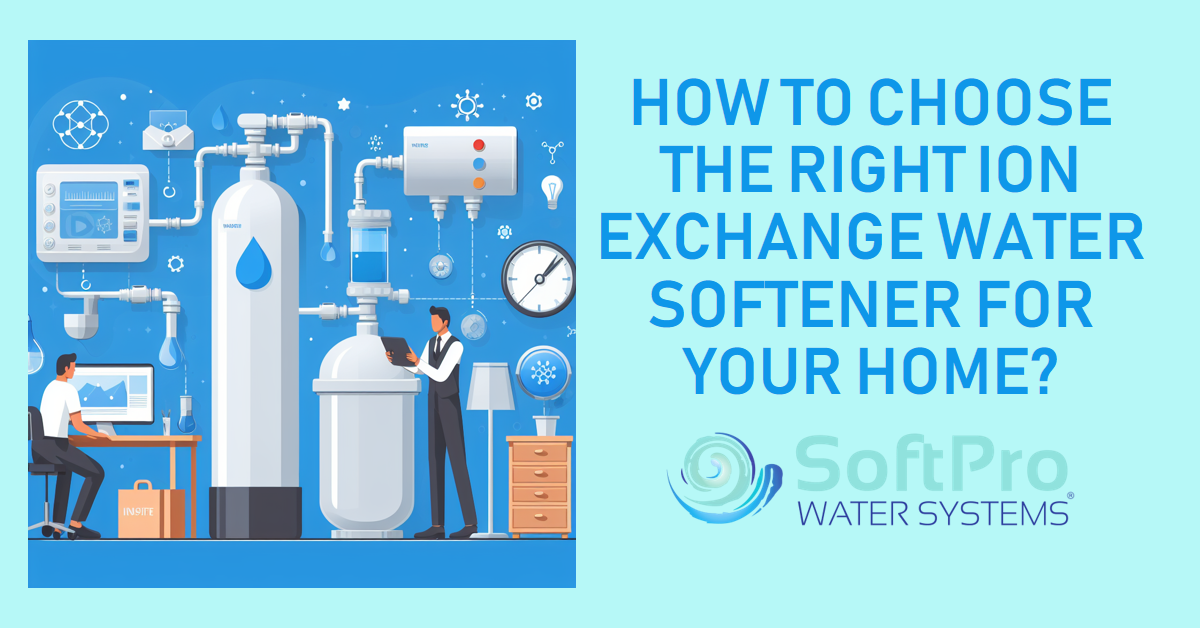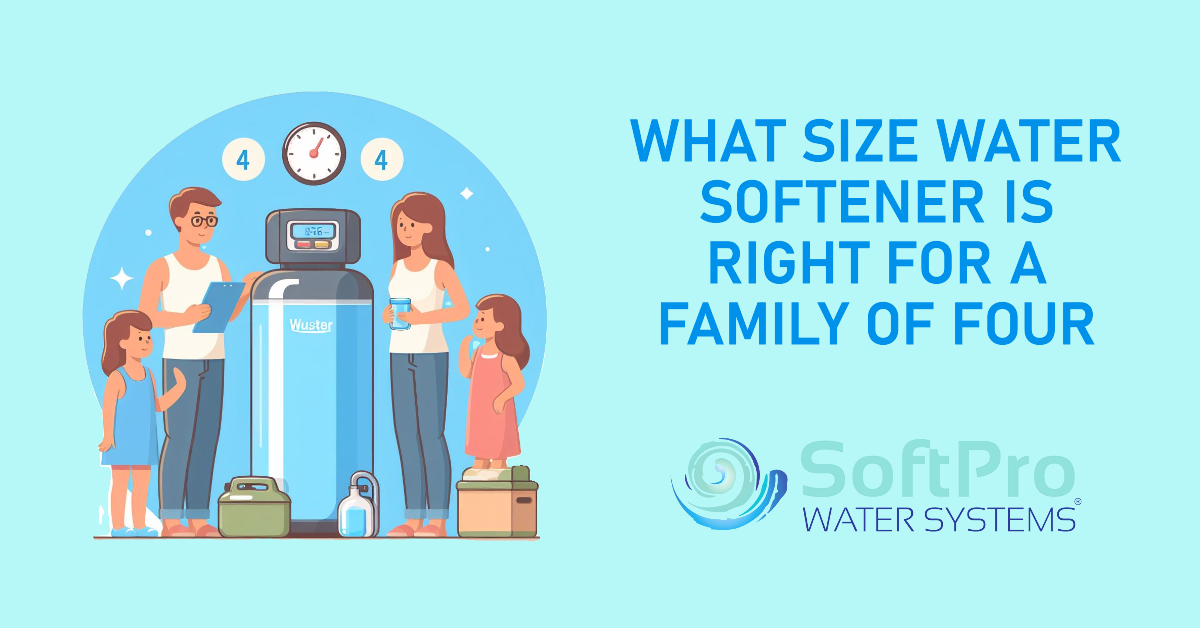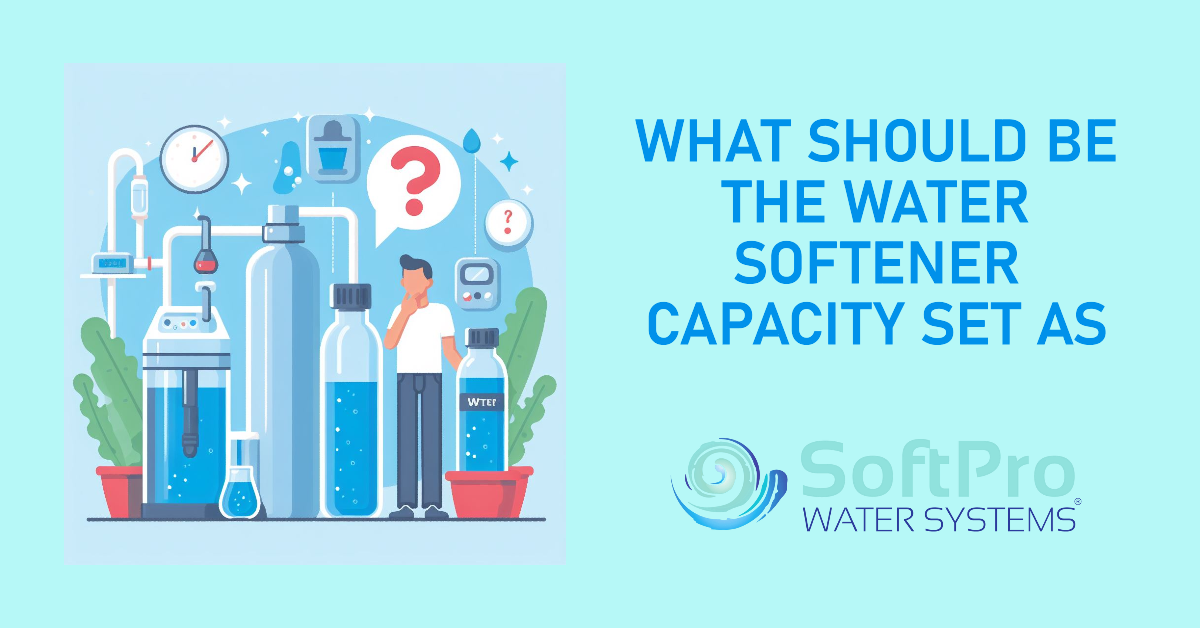How to Choose the Right Ion Exchange Water Softener for Your Home?
Table of Contents
Why Choose an Ion Exchange Water Softener?
If you have hard water in your home, an ion exchange water softener can be an excellent solution to alleviate its negative effects.
Let's dive deeper into the benefits of soft water and the problems caused by hard water to help you make an informed decision:
Benefits of Soft Water:
-
Improved appliance lifespan: Soft water prevents mineral buildup in appliances, extending their lifespan by an average of 30%, according to the Water Quality Research Foundation. This includes water heaters, dishwashers, washing machines, and even coffee makers.
- Reduced soap usage: Soft water allows soap to lather more effectively, so you'll use less soap and detergent for cleaning tasks. This results in average savings of 75% on laundry detergent and 50% on dish soap, as reported by the American Cleaning Institute.
- Softer skin and hair: Soft water is gentler on skin and hair, leaving them feeling smoother and less dry. Studies have shown that soft water can improve skin conditions like eczema and psoriasis.
- Better taste and water quality: Soft water often has a more pleasant taste than hard water, and it can also reduce the presence of chlorine and other impurities.
Problems Caused by Hard Water:
- Scaling: Hard water leaves behind mineral deposits (scale) on fixtures, appliances, and pipes, reducing water flow and efficiency. This can lead to costly repairs and replacements.
- Mineral buildup: Hard water can cause soap scum buildup in showers, bathtubs, and sinks, making them difficult to clean.
- Reduced appliance efficiency: Hard water can reduce the efficiency of water-using appliances, leading to higher energy bills.
- Soap scum: Hard water reacts with soap to form a sticky residue called soap scum, which can be difficult to remove and can clog pipes.
Ion exchange water softeners effectively address these issues by removing the hard water minerals (calcium and magnesium) that cause these problems.
Choosing the Right Ion Exchange Water Softener for Your Home
Now that you understand the benefits of soft water and the drawbacks of hard water, let's dive into the crucial task of choosing the right ion exchange water softener for your specific needs.
Here are the key factors to consider:
1. Matching Capacity to Your Needs:
-
Grain Capacity: This crucial metric determines the softener's ability to remove hardness minerals. A higher grain capacity is needed for homes with harder water or higher water usage.
- To estimate your required grain capacity, consult online tools or a water treatment specialist. Consider an average household using 40 gallons of water per person per day, with water hardness of 10 grains per gallon, would need a softener with a minimum capacity of 1,600 grains (40 gallons/day x 365 days/year x 10 grains/gallon).
- Flow Rate: Choose a softener with a flow rate that can meet your peak water demand to avoid pressure drops. For most homes, a flow rate of 10-15 gallons per minute is sufficient.
2. Assessing Performance and Efficiency:
- Salt Efficiency: Opt for a softener with higher salt efficiency to minimize salt usage and reduce operating costs. Look for models that use less than 4 pounds of salt per 1,000 grains of hardness removed.
- Regeneration Frequency: More frequent regeneration wastes water and salt. Choose a softener with a longer regeneration cycle for improved efficiency.
- Additional Features: Consider features like digital controls, Wi-Fi connectivity, and leak detection for easy monitoring and operation.
3. Comparing Brands and Models:
- Read Reviews and Expert Opinions: Research reputable brands and compare models based on user reviews and expert evaluations.
- Analyze Specifications and Features: Compare capacity, flow rate, efficiency, warranty coverage, and features to find the best fit for your needs and budget.
- Consider Brand Reputation and Customer Service: Choose a brand with a solid reputation for quality and reliable customer service.
4. Cost and Budgeting:
- Initial Purchase Price and Installation: Softener prices vary based on capacity, features, and brand. Installation costs depend on the complexity of your plumbing system and whether you choose DIY or professional installation.
- Ongoing Salt and Maintenance Costs: Factor in the cost of salt refills and regular maintenance (approximately every 6 months).
- Long-Term Savings: Consider the long-term savings on appliance lifespan, cleaning products, and energy bills when making your cost-benefit analysis.
5. Environmental Considerations:
- Minimize Salt Usage: Choose a salt-efficient softener and explore alternative approaches like potassium-based systems to reduce environmental impact.
- Choose Sustainable Brands: Look for brands committed to sustainable practices, such as energy-efficient models and responsible salt sourcing.
6. Plumbing System Compatibility and Installation Requirements:
- Space Needs: Ensure the softener can fit comfortably in your designated space, considering its size and required clearance for maintenance.
- Bypass Valve: Look for a model with a bypass valve, allowing you to temporarily bypass the softener for specific uses (like watering plants) where softened water isn't needed.
- Professional Installation: For complex plumbing systems or if you're unfamiliar with DIY installation, consider hiring a licensed plumber to ensure proper setup and avoid potential issues.
7. Warranty Coverage and Terms:
- Length: Opt for a softener with a longer warranty for added peace of mind, typically ranging from 3 to 10 years for major components.
- Parts Covered: Understand the warranty coverage details, particularly what parts are covered and for how long.
- Service Availability: Ensure the manufacturer or retailer offers readily available service should you require assistance during the warranty period.
8. Local Water Quality and Regulations:
- Testing: Consider testing your water for specific hardness levels and mineral composition to choose the most effective softener solution. Some municipalities provide water quality reports you can access.
- Permits: In some areas, installing a water softener may require permits or adhere to specific regulations. Check with your local building department to ensure compliance.
Remember, choosing the right water softener is an investment in your home's comfort, appliance longevity, and potentially even your health. By carefully considering these factors, you can ensure you find the perfect model to transform your hard water into the soft, luxurious water you deserve.
Installation and Maintenance of Your Ion Exchange Water Softener
Now that you've chosen the perfect water softener for your home, it's time to get it up and running! Here's a breakdown of the installation and maintenance process:
DIY Installation Guide (For Experienced DIYers):
Disclaimer: If you're not confident in your DIY skills, it's always best to seek professional help from a licensed plumber. Improper installation can damage your plumbing system and void your warranty.
Here's a basic outline for experienced DIYers:
- Gather Tools and Materials: You'll need wrenches, pipe cutters, plumber's tape, Teflon paste, and any additional fittings specific to your chosen model.
- Turn off Water Supply: Locate the main shut-off valve for your home's water supply and turn it off completely.
- Install Bypass Valve (Optional): If your softener doesn't have a built-in bypass, install one according to the manufacturer's instructions.
- Connect the Softener: Follow the provided installation guide to connect the softener to your plumbing system, ensuring all connections are tight and leak-free.
- Fill the brine tank with salt: Use the recommended type and amount of salt for your softener model.
- Turn on Water Supply and Program the Softener: Slowly open the main water valve and allow the system to fill. Then, program the softener's settings according to the manufacturer's instructions.
- Test for Leaks and Check Water Hardness: Check for leaks at all connections and run the water through your faucets. Use a water hardness test kit to confirm that the water is softened.
Professional Installation Options (Recommended for Most Users):
Hiring a licensed plumber ensures a professional and hassle-free installation. They will have the expertise and tools to handle any complexities in your plumbing system and ensure proper setup and code compliance.
Here's what to expect:
- The plumber will assess your plumbing system and recommend the optimal location for your softener.
- They will handle all installation tasks, including connecting the softener, filling the brine tank, programming settings, and testing for leaks.
- Many plumbers offer warranties on their installation work, providing additional peace of mind.
Routine Maintenance for Optimal Performance:
Maintaining your water softener is essential for its longevity and efficiency. Here's a quick guide:
- Add Salt Regularly: Monitor the salt level in the brine tank and refill it when it reaches the designated level (typically every 6 months).
- Clean the System: Regularly clean the brine tank and injector to remove sediment buildup. Consult your softener's manual for specific cleaning instructions.
- Check and Adjust Settings: Periodically check water hardness levels and adjust settings as needed.
- Schedule Professional Service: Consider having a professional service your softener every 1-2 years for a thorough inspection and cleaning.
By following these installation and maintenance tips, you can ensure your ion exchange water softener operates smoothly and delivers soft, luxurious water to your home for years to come.
Exploring Ion Exchange Systems and Alternatives
Now that you're equipped with the knowledge to choose, install, and maintain your ideal ion exchange water softener, let's dive deeper into various system types and consider alternative approaches to soft water:
Single-Tank vs. Dual-Tank Systems:
- Single-Tank Softeners: These compact and affordable models perform both softening and regeneration cycles in the same tank. They're suitable for low-to-moderate water usage but experience downtime during regeneration, potentially impacting water flow.
- Dual-Tank Softeners: Featuring separate tanks for softening and brine, these systems provide continuous soft water even during regeneration. They're ideal for high water usage homes but come at a higher price point and require more space.
Choosing the Right Tank Type:
Consider your water usage habits, budget, and available space to determine the best fit. Single-tank systems are perfect for smaller homes with moderate usage, while dual-tank systems cater to high-demand households and prioritize uninterrupted soft water flow.
Alternative Water Softening Solutions:
While ion exchange remains the most common method, explore these options if specific circumstances or preferences warrant:
- Reverse Osmosis (RO) Systems: RO filters remove a wide range of contaminants, including hardness minerals, but require high water pressure and produce wastewater. They're ideal for areas with extremely hard water or specific health concerns.
- Magnetic Water Softeners: These non-invasive systems claim to alter mineral structure without removing them, but their effectiveness remains scientifically unproven. They may be suitable for mild hardness but lack the guaranteed softening power of ion exchange or RO.
- Salt-Free Water Softeners: These eco-friendly alternatives use electronic pulses to alter mineral crystallization, potentially reducing scale buildup. However, their effectiveness often varies depending on water hardness and may be insufficient for all situations.
Selecting the Best Alternative:
Carefully evaluate your water quality, budget, and desired level of softening before choosing an alternative. Consult with water treatment professionals to analyze your specific needs and determine the most effective solution for your home.
Conclusion: Embrace the Benefits of Soft Water with the Right Ion Exchange System
Choosing the right ion exchange water softener can transform your home from a battleground against hard water deposits to an oasis of soft, luxurious water. By understanding your water needs, capacity requirements, and budget, you can select the ideal system to reap the numerous benefits:
- Extend appliance lifespan: Say goodbye to premature repairs! Soft water can extend the life of your washing machines, dishwashers, and water heaters by up to 30%, according to the Water Quality Research Foundation.
- Reduce cleaning time and effort: Soft water lathers up beautifully, allowing you to use less soap and detergent for sparkling dishes and squeaky-clean surfaces. The American Cleaning Institute reports average savings of 75% on laundry detergent and 50% on dish soap with soft water.
- Enjoy softer skin and hair: No more dry, itchy skin! Soft water is gentler on your skin and hair, leaving them feeling smoother and more hydrated. Studies have even shown it can improve conditions like eczema and psoriasis.
- Experience better taste and water quality: Soft water often boasts a more pleasant taste and can also reduce the presence of chlorine and other impurities.
Remember, not all ion exchange systems are created equal. Consider factors like capacity, flow rate, salt efficiency, regeneration frequency, and additional features to find the perfect fit for your home. Single-tank systems are budget-friendly for low-to-moderate water usage, while dual-tank systems provide uninterrupted soft water for high-demand households.
Don't forget to explore alternative solutions like reverse osmosis for areas with extremely hard water or specific health concerns. Salt-free water softeners offer an eco-friendly option for mild hardness, but their effectiveness may vary. Consult with water treatment professionals to analyze your specific needs and determine the most effective solution for your home.
Investing in a water softener is an investment in your home's comfort, appliance longevity, and potentially even your health. By making an informed decision based on your unique needs and preferences, you can unlock the door to a world of soft water and all the benefits it brings.
Key Takeaways:
- Hard water can wreak havoc on your home and appliances.
- Ion exchange water softeners offer a proven solution to combat hard water.
- Choose the right system based on your water usage, capacity needs, and budget.
- Explore alternative solutions like reverse osmosis or salt-free softeners for specific situations.
- Consult with water treatment professionals for expert guidance.
Embrace the transformative power of soft water and enjoy the countless benefits it offers to your home and well-being!






![SoftPro Chlorine+ Carbon Whole House Water Filter to Remove PFAS, Chlorine, Chloramine & Pesticides [City Water Filters Series]](http://www.softprowatersystems.com/cdn/shop/files/SoftPro_Whole_House_Carbon_Filter_Chlorine.webp?v=1769127507&width=140)
![SoftPro Iron Filter - Iron Master AIO - Best Iron Filter for Well Water [Air Injected Water Filter / Katalox]](http://www.softprowatersystems.com/cdn/shop/files/SoftPro_AIO_Iron_Master_-_Best_Whole_House_Iron_Filter_1b6d98eb-a7f7-4749-9306-7333a15685e9.webp?v=1769125508&width=140)













